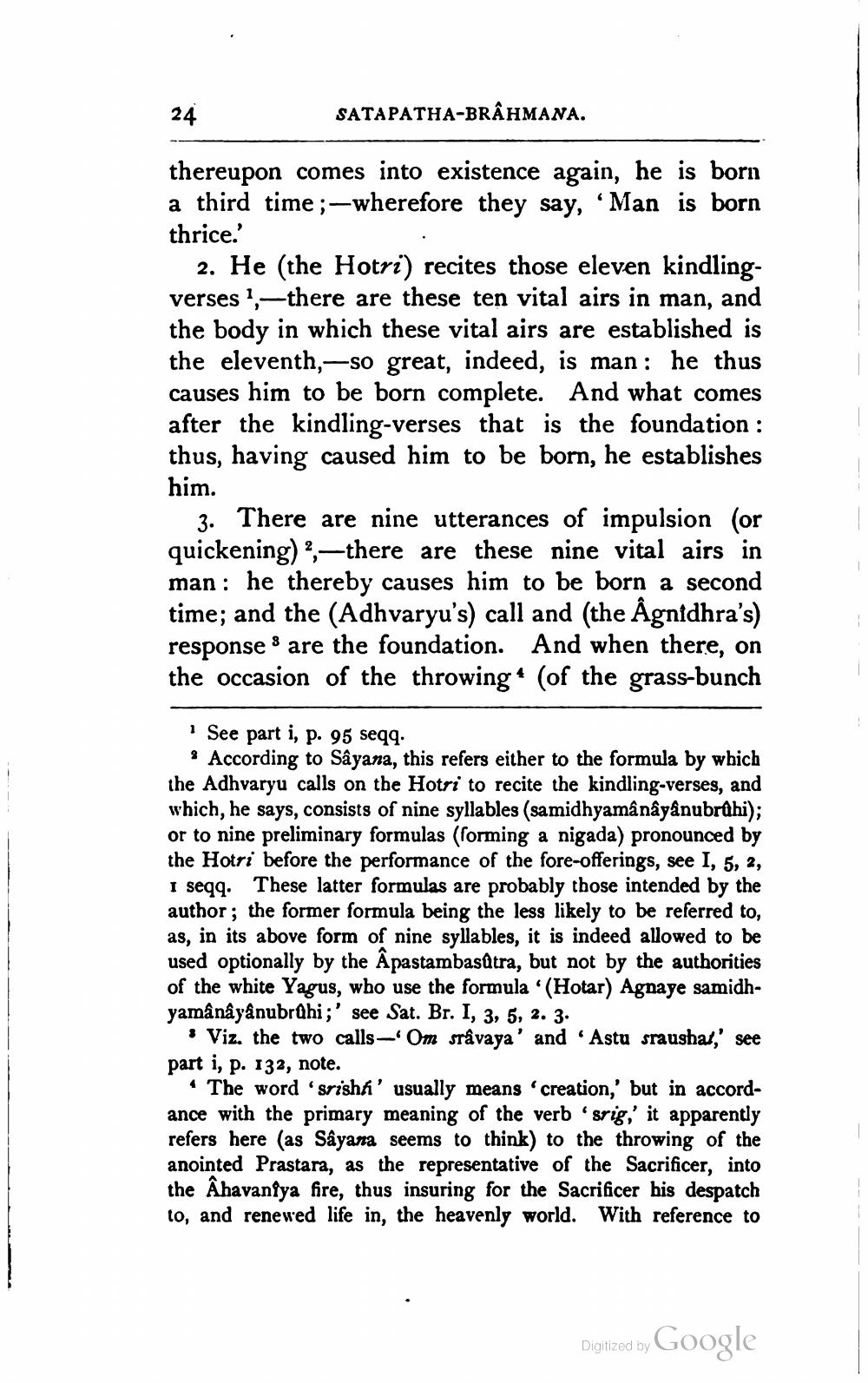________________
24
SATAPATHA-BRAHMANA.
thereupon comes into existence again, he is born a third time;—wherefore they say, “Man is born thrice.'
2. He (the Hotri) recites those eleven kindlingverses !,- there are these ten vital airs in man, and the body in which these vital airs are established is the eleventh,—so great, indeed, is man: he thus causes him to be born complete. And what comes after the kindling-verses that is the foundation : thus, having caused him to be born, he establishes him.
3. There are nine utterances of impulsion (or quickening) ?,—there are these nine vital airs in man: he thereby causes him to be born a second time; and the (Adhvaryu's) call and (the Âgnidhra's) response 8 are the foundation. And when there, on the occasion of the throwing 4 (of the grass-bunch
See part i, p. 95 seqq. * According to Sâyana, this refers either to the formula by which the Adhvaryu calls on the Hotri to recite the kindling-verses, and which, he says, consists of nine syllables (samidhyamânâyânubrûhi); or to nine preliminary formulas (forming a nigada) pronounced by the Hotri before the performance of the fore-offerings, see I, 5, 2, I seqq. These latter formulas are probably those intended by the author; the former formula being the less likely to be referred to, as, in its above form of nine syllables, it is indeed allowed to be used optionally by the Apastambasūtra, but not by the authorities of the white Yagus, who use the formula '(Hotar) Agnaye samidhyamânâyânubrQhi;' see Sat. Br. I, 3, 5, 2. 3.
• Viz. the two calls — Om sråvaya' and `Astu sraushat,' see part i, p. 132, note.
The word 'srishn' usually means 'creation,' but in accordance with the primary meaning of the verb 'srig,' it apparently refers here (as Sâyana seems to think) to the throwing of the anointed Prastara, as the representative of the Sacrificer, into the Ahavanfya fire, thus insuring for the Sacrificer his despatch to, and renewed life in, the heavenly world. With reference to
Digitized by Google




